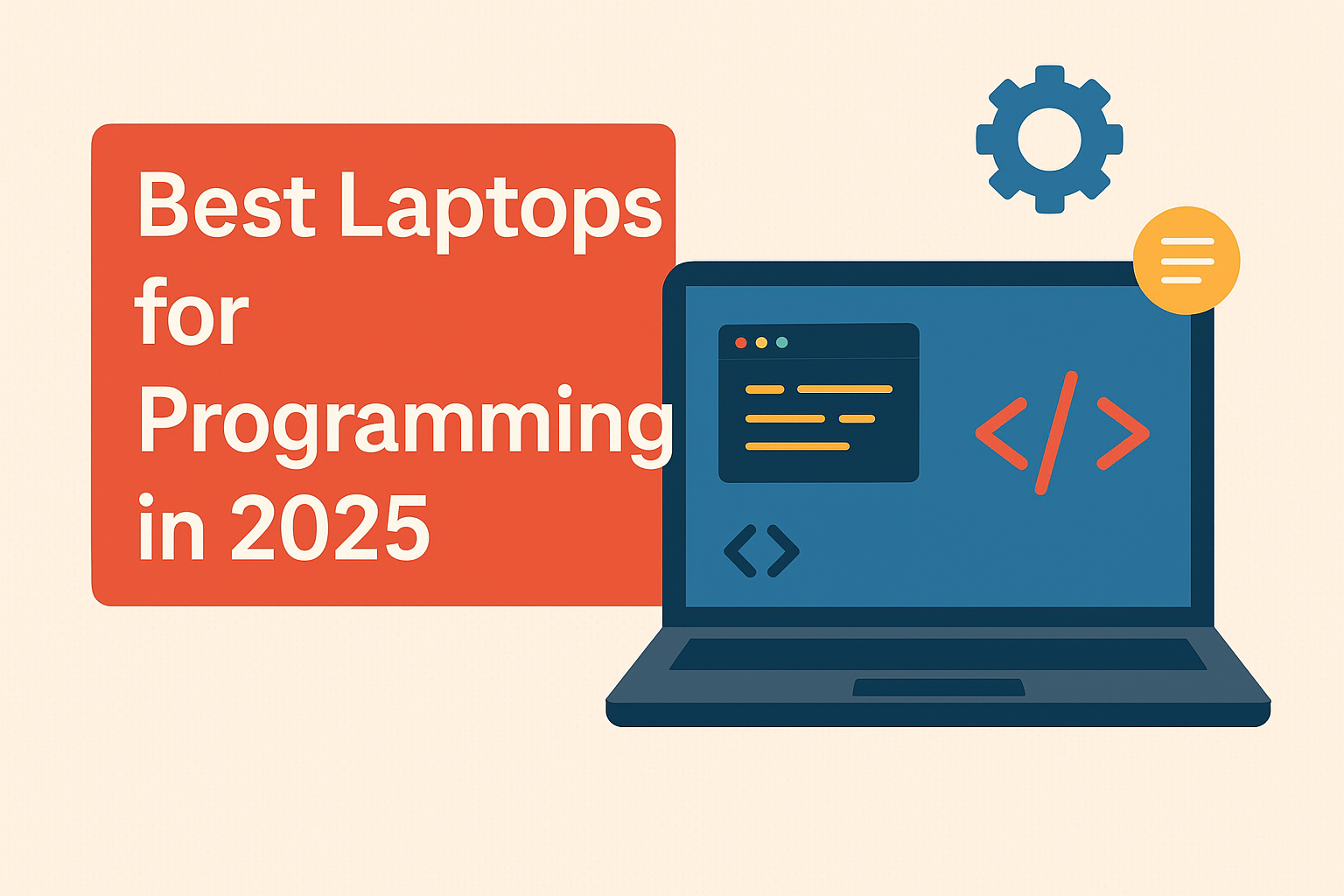Best Laptops for Programming in 2025 (Budget to Pro)
Choosing the best laptops for programming in 2025 can be overwhelming with so many options available. Whether a student, a full-stack developer, or working in AI, your laptop is your most essential tool. This guide helps you find the perfect machine for your needs — from budget models to professional-level powerhouses.
What Makes the Best Laptops for Programming in 2025?
The best laptops for programming should offer fast performance, a comfortable keyboard, excellent battery life, and enough RAM and storage to handle modern development tools.
Key specs to look for:
– Processor (CPU): Intel i5/i7 or AMD Ryzen 5/7 or Apple M2/M3
– RAM: Minimum 16GB
– Storage: SSD (512 GB+ preferred)
– Screen: Full HD or higher with IPS panel
– Battery: Minimum 8 hours
– Keyboard: Backlit and comfortable for long coding sessions
Best Laptops for Programming in 2025: Budget Category (Under $800)
1. Acer Aspire 5 (Ryzen 7)
Specs: Ryzen 7 5700U, 16GB RAM, 512GB SSD
A top choice for programming if you’re just getting started. It’s affordable, powerful, and reliable for web development and lightweight tools.
2. Lenovo IdeaPad Slim 5i
Specs: Intel Core i5 13th Gen, 16GB RAM, 512GB SSD
Another great option among the best laptops in 2025, especially if you want a sleek design and decent power on a budget.
3. MacBook Air M2 (2025)
Specs: Apple M2, 16GB RAM, 512GB SSD
For programming, the MacBook Air is known for its silent performance, optimized tools for iOS/macOS development, and solid battery life.
4. Dell XPS 13 Plus
Specs: Intel i7, 16GB RAM, 1TB SSD
One of the best laptops with an edge-to-edge display and an excellent keyboard for long coding hours.
Pro-Level Picks ($1400+)
5. MacBook Pro M3 (14-inch)
Specs: Apple M3 Pro, 16GB–32GB RAM, 1TB SSD.
For professionals, this is one of the best laptops for programming in 2025, especially in data science, video editing, or machine learning.
6. Razer Blade 16
Specs: Intel i9, RTX 4070, 32GB RAM, 1TB SSD.
For game devs or ML engineers, this powerful laptop is a must-have in the best laptops for programming in 2025 list.
7. Framework Laptop 16
Specs: AMD Ryzen 9, Modular GPU, up to 64GB RAM
Among the best laptops for programming in 2025, especially if you value customizability, Linux support, and repairability.
Which One is Right for You?
Here’s a quick comparison of the best laptops for programming in 2025 by developer type:
| Developer Role | Recommended Laptop |
| Student/Beginners | Acer Aspire 5 / Lenovo IdeaPad Slim 5i |
| Web Dev | Dell XPS 13 / MacBook Air M2 |
| Mobile Dev | MacBook Pro M3 / MacBook Air M2 |
| AI/ML Engineer | Razer Blade 16 / MacBook Pro M3 |
| Linux Dev | Framework Laptop 16 |
| Game Dev | Razer Blade 16 |
How Much RAM Do You Need for Programming in 2025?
When choosing the best laptop for programming in 2025, RAM (Random Access Memory) is one of the most crucial specifications. But how much RAM is needed for your programming tasks?
Here’s a quick breakdown:
1. For Light Development (e.g., HTML, CSS, JavaScript)
If you’re working on basic web development, 8GB of RAM is typically sufficient. It’s perfect for running code editors, browsers, and light development tools without lag.
2. For Intermediate Development (e.g., Python, Java, C++)
For developers working with languages like Python, Java, or C++, 16GB of RAM offers a smoother experience. It allows you to run multiple applications and handle moderate tasks like compiling and testing without performance issues.
3. For Heavy Development (e.g., Game Development, Machine Learning)
For resource-intensive tasks such as game development or machine learning, 32GB or more is ideal. These tasks demand a lot of memory for handling large datasets, running simulations, or managing virtual environments.
Why RAM Matters
The more RAM you have, the better your system will perform when running multiple processes. For programming, more RAM means faster workflows, smoother multitasking, and better overall performance.
Conclusion
Finding the best laptops for programming in 2025 doesn’t have to be hard. This guide offers a solid range of options from budget to pro, tailored to different needs. Prioritize what matters to your workflow: CPU, RAM, battery life, OS support, and portability.
Related Topics :

